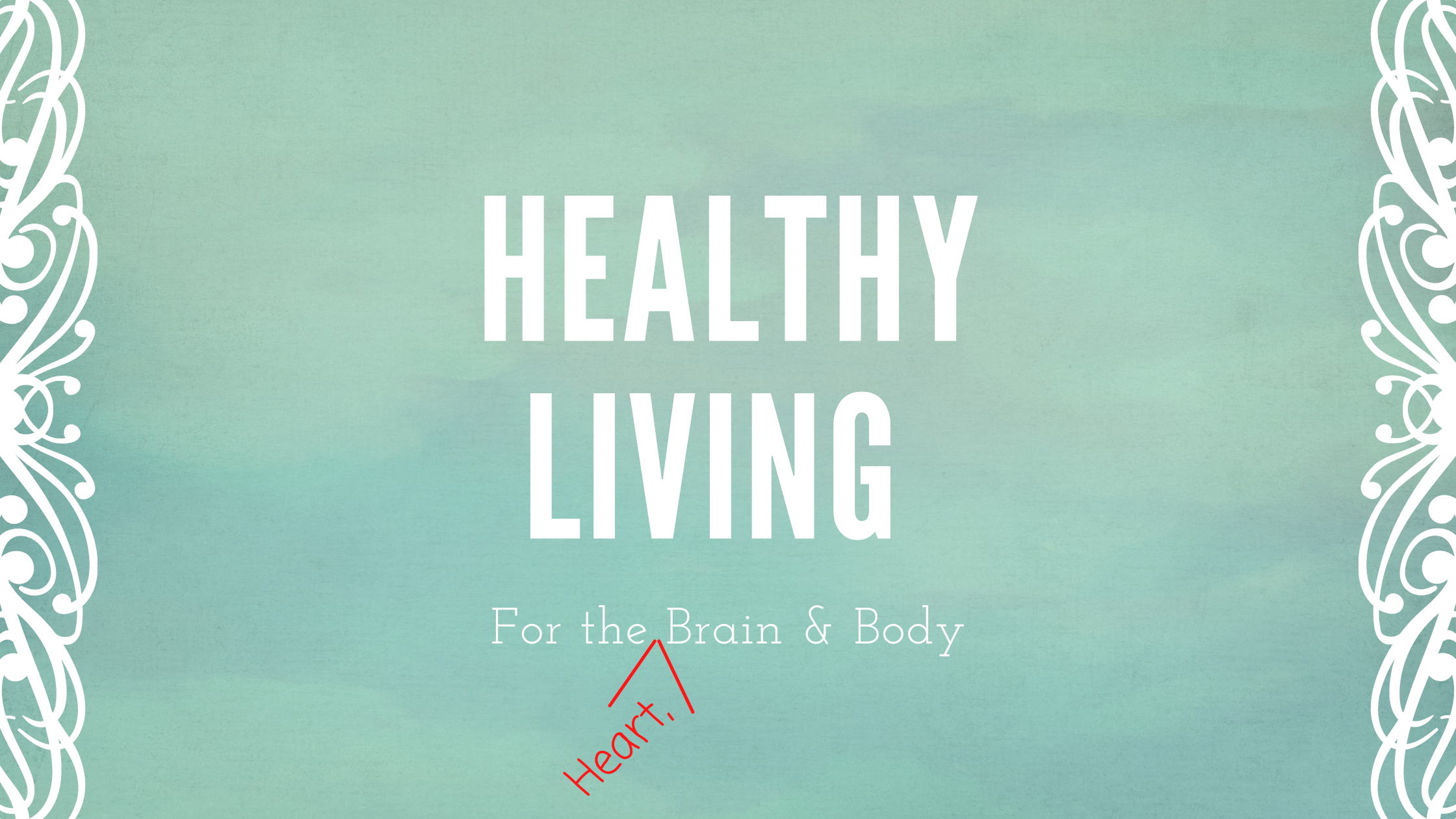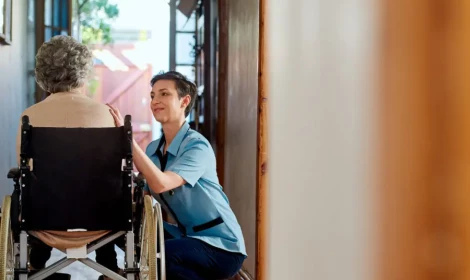Healthy Living For The Heart, Brain and Body
Making better decisions about your health, diet and activities you participate in today affect you down the road. Find out the 4 things you can start doing today that can help you live your best life!

February is American Heart Month. In honor of our cardiovascular health, we are going to talk about the connection between our heart and brain, and how keeping your heart healthy may ward off dementia and other brain diseases.
You may not realize it, but your heart and brain are connected. Doing things to keep your heart healthy, such as eating a balanced diet, exercise and practicing good habits, directly affect your brain. It is almost like a two-for-one deal, which can be good or bad, depending on your choices. The choices you make today shape your future and how well you will age. There are four main areas that we will focus on: exercise, diet, cognitive activity and social engagement.
Exercise
We tend to think of our body and heart as the main beneficiaries of regular exercise. But, the body and heart are not the only parts of us that benefit. Since our heart and brain health are directly connected, your brain also benefits from regular exercise.
Aim for 20 minutes of physical activity every day. There is no need to get stressed out about this. No one is saying to join your nearest gym and start bodybuilding. You do not have to train for a marathon or play competitive tennis.
Simply parking a little further away when you go to the grocery store, or taking the stairs instead of the elevator, counts towards your 20 minutes of activity. Start a routine of walking your dog everyday. Dogs easily get into the “go-for-a-walk” routine and will hold you accountable for their daily walk. Breaking it up can make it easier to include in your daily routine. Whatever activity you decide to do, enjoy it while you are at it. It is your time, reserved for only you, your heart and your brain.
There is no better time to begin including exercise in your routine than right now. However, be sure to consult your physician before beginning any new exercise program and make sure you are wearing protective gear (bike helmet) if you are engaged in activities that might pose a little risk.
Diet
It is often said that ‘you are what you eat’. What we put into our body is what we get back in the form of energy, or lack thereof. Diet can affect the appearance of your skin, your immune system, and of course, your heart and brain. Incorporating fresh fruits and vegetables, lean protein, and whole grains is recommended by health experts. Include polyunsaturated and monounsaturated fats that are found in fish and vegetable oils. Stay away from saturated fats, processed foods, deep fried foods and excess sugar and salt.
If you are unsure of what foods are healthy, speak with a nutritionist. Certain diets such as a Mediterranean Diet have shown many health benefits.
If you use alcohol and/or tobacco, consider quitting. Alcohol and tobacco use has been shown to have many negative consequences for your brain. If quitting is not likely for you, even slowing down a bit can have positive effects. To find out about programs in your area to help you quit smoking call 1-800-QUIT-NOW.
Cognitive Activity
Give your brain a workout and never stop learning. Your brain, like your muscles, will atrophy if inactive. Find new and challenging ways to use your mind to keep your mind active.
There are endless ways to challenge yourself and keep your mind active.

- Learn a new skill such as another language, woodworking or calligraphy
- Become an expert on a new subject
- Take a class
- Write a book, short story or informative essay
- Go back to school and earn a degree
- Begin a new career
- Volunteer your expertise
- Join a local hobby group
- Start a summer reading program or join a book club
According to Wikipedia, Shigemi Hirata from Japan, earned his bachelor of arts degree at almost 97 years old. If he can do it, so can you! You are never too old to learn or try something new. So go ahead and take that cooking class, learn the art of bonsai trees or how to speak Dutch. You might surprise yourself by how brilliant you really are!
Increasing your cognitive activity increases your neurons and helps stretch your brain, similar to stretching your body when you exercise. Make sure that you are really challenging yourself, not just working through easy crossword puzzles. Keeping your mind active may help you avoid or delay dementia and memory loss down the road.
Social Engagement
Research shows that adults who are socially engaged with others may benefit from increased brain health. Staying socially active does not even have a monetary cost. Call your friends, call your family, meet your neighbors. Ideas for staying socially active include:
- Plan meetups with family, friends or neighbors
- Join a local club, such as a bridge club, mycological society, dog walking group, poker team, book club or a bowling league
- Volunteer
- Play pickleball
- Join a hobby group
- Find a fun part time job
- Take a cooking or art class
- Check meetup.com for groups with similar interests

Some of the same things that you are doing to work on your cognitive activity and physical health can work hand-in-hand with engaging socially.
There are many different ways to protect your heart and brain so you can age well. Aiming for 20 minutes of daily physical activity, enjoying a healthy diet of fresh vegetables, fruit, lean protein and whole grains, keeping your mind active and remaining socially engaged, all work together to keep your brain and body healthy, both now and as you get older.
It is time to leave that crazy alcohol, smoke-filled, sugar-laced, couch potato life behind and focus on your best life. Your brain, heart and future self will thank you. We all have one shot here on earth. Start making the most of it by developing healthier habits and routines today for a better tomorrow.
Senior Care Authority of New York and Southwest Florida helps families with their eldercare needs through consulting services, senior living community and memory care placement, educational seminars and by helping raise awareness about Alzheimer’s and dementia.
If you would like to learn more about how our services may be beneficial to you or a loved one, get in touch with us today. We will answer your questions, offer guidance and support and help you understand more about the road you or a loved one is on.





